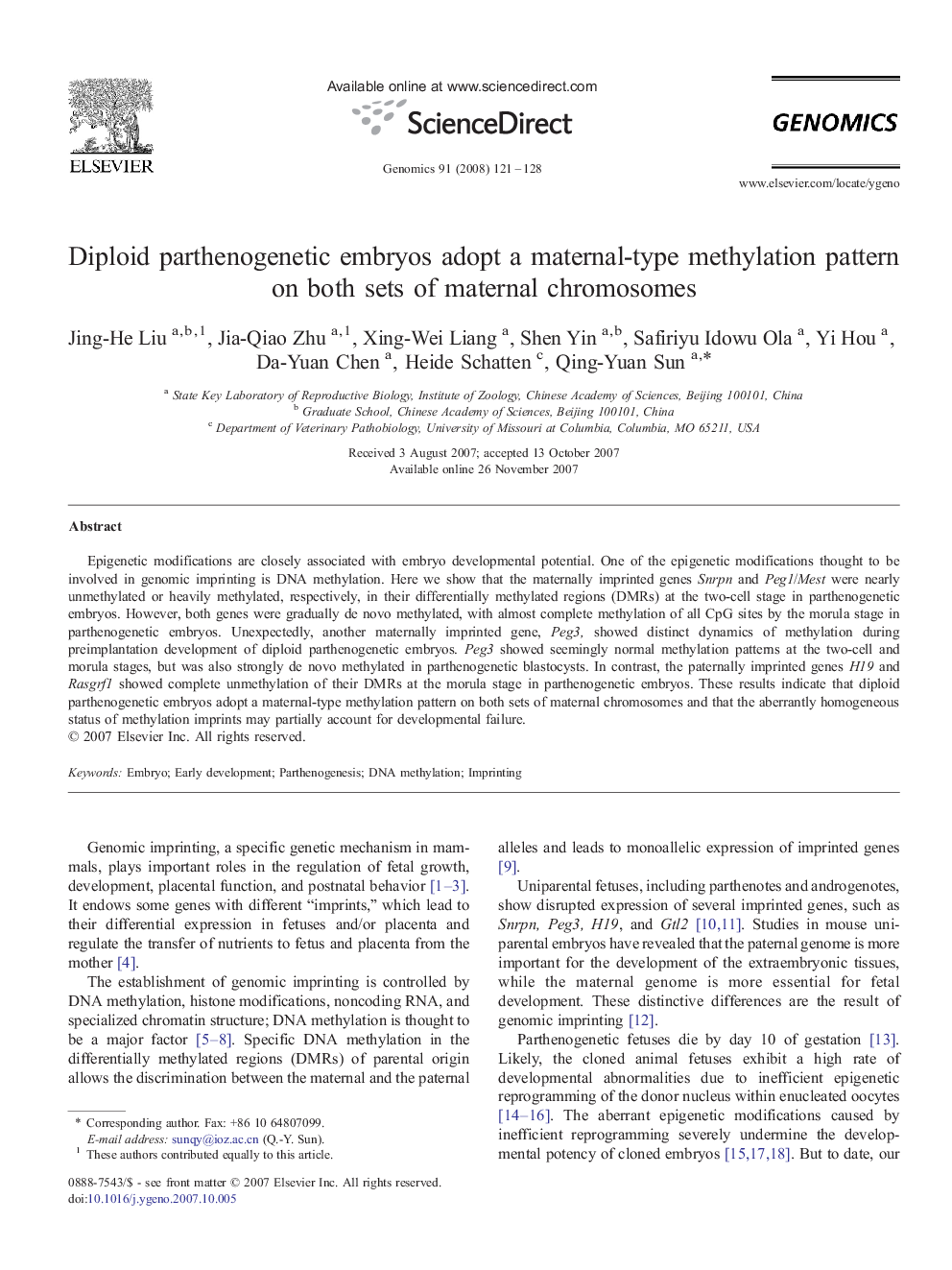| Article ID | Journal | Published Year | Pages | File Type |
|---|---|---|---|---|
| 2820999 | Genomics | 2008 | 8 Pages |
Epigenetic modifications are closely associated with embryo developmental potential. One of the epigenetic modifications thought to be involved in genomic imprinting is DNA methylation. Here we show that the maternally imprinted genes Snrpn and Peg1/Mest were nearly unmethylated or heavily methylated, respectively, in their differentially methylated regions (DMRs) at the two-cell stage in parthenogenetic embryos. However, both genes were gradually de novo methylated, with almost complete methylation of all CpG sites by the morula stage in parthenogenetic embryos. Unexpectedly, another maternally imprinted gene, Peg3, showed distinct dynamics of methylation during preimplantation development of diploid parthenogenetic embryos. Peg3 showed seemingly normal methylation patterns at the two-cell and morula stages, but was also strongly de novo methylated in parthenogenetic blastocysts. In contrast, the paternally imprinted genes H19 and Rasgrf1 showed complete unmethylation of their DMRs at the morula stage in parthenogenetic embryos. These results indicate that diploid parthenogenetic embryos adopt a maternal-type methylation pattern on both sets of maternal chromosomes and that the aberrantly homogeneous status of methylation imprints may partially account for developmental failure.
